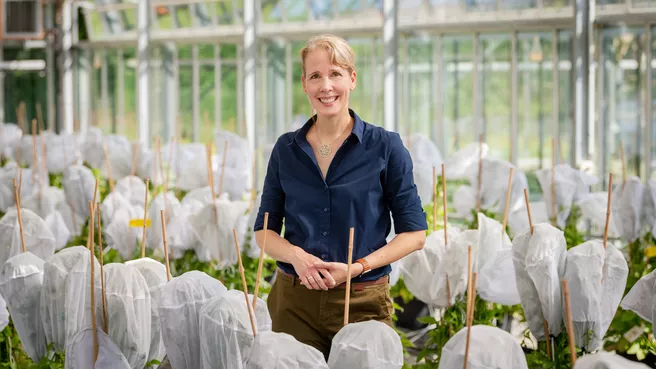There is a rich treasure trove of plant species on our planet that we can tap into - whether for use as food, as medicinal and spice plants, as ornamental plants or as renewable raw materials. Around 300,000 edible plant species are available to feed the world's population, of which we consume only a fraction. Three crops, rice, wheat and corn, feed half the world's population. These grains produce high yields and are filling. They are rich in starch and carbohydrates, which makes them efficient sources of calories. In some countries, however, they are often the only food source for the poorest people. Since some grains - such as rice - contain hardly any vitamins and minerals, malnutrition and the resulting diseases are the consequences.
Promoting neglected plant species for greater nutritional diversity
To prevent one-sided nutrition and increase biodiversity on farmland, additional plant species can be cultivated. Thereby, special crops are very interesting, but also species that have not been cultivated so far. Up to now there still is a lack of knowledge about cultivation techniques and genetic resources for breeding regarding such species. Such wild plant species often have great local importance and are excellently adapted to regional climatic conditions, but are neglected in research and breeding work because sufficiently large, global sales markets are missing.
Domestication of new species can expand crop diversity
"Plant science research can contribute to the domestication and inculturing of wild plant species by creating knowledge needed to improve important traits through breeding," explains Prof. Brigitte Poppenberger, head of the Chair of Biotechnology of horticultural crops at the TUM School of Life Sciences.
Insights into crop requirements can also be of central importance in enabling cultivation techniques to be established. A focus of Prof. Poppenberger's research group is on elongation growth and the stress resistance of plants. The formation of secondary metabolites that influence food quality and mechanisms of seed dispersal are further research areas of interest for the group.
About the speaker
Brigitte Poppenberger studied horticulture and agriculture at the University of Natural Resources and Applied Life Sciences in Vienna, where she received her PhD in 2003 on the molecular mechanisms of mycotoxin resistance in plants. After a 3-year research stay at the University of York in England, she founded her own research group at the Max Perutz Laboratories of the University of Vienna. In October 2011, Prof. Poppenberger was appointed to TUM, where she established the Chair of Biotechnology of horticultural crops. The professorship uses bioscientific methodology to gain basic scientific insights into growth and development regulation, as well as stress tolerance in plants. Resistance of plants to temperature extremes, such as heat and frost, as well as to microbial pathogens, is the focus of research interest; research is conducted with model systems such as Arabidopsis thaliana, as well as crop plants such as tomato and sunflower. The group is also involved in the scientific and breeding development of orphan crop species with high future potential for sub-Saharan Africa and other regions with harsh climatic conditions.
Further links:
https://www1.ls.tum.de/bgk/willkommen/
Editing:
Susanne Neumann
TUM School of Life Sciences
Press and Public Relations
susanne.neumann(at)tum.de
Contact:
Prof. Dr. Brigitte Poppenberger
Chair of Biotechnology of horticultural crops
TUM School of Life Sciences
Liesel-Beckmann-Str. 1
85354 Freising
Tel.: +49 8161 71 2401
brigitte.poppenberger(at)tum.de
